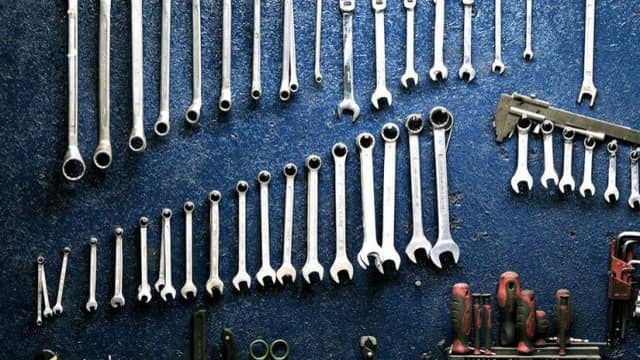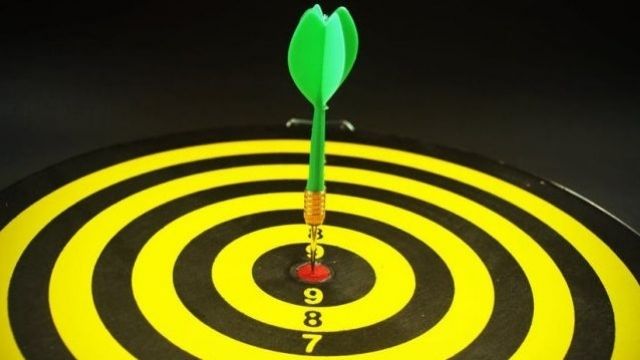Advertiser Disclosure
What are Credit Building Tools?
Updated On November 1, 2021
Editorial Note: This content is based solely on the author's opinions and is not provided, approved, endorsed or reviewed by any financial institution or partner.

Credit building tools are the best how to repair your credit. If you have bad credit and want to know the best ways to build credit, then credit building tools can help improve your credit profile. If you have bad credit, it is challenging to get access to credit, whether it is certain credit cards, bank loan or a mortgage.
To know how to fix your credit, this guide will help you learn the best ways to build credit. Credit building tools include secured credit cards, credit card consolidation loans and other strategies. Below you can learn more how credit repair tools can help you fix your credit and learn the best ways to build credit.
Top Picks For Personal Loans
July 2024
View Details
Overview
Details
Review:
View Details
Overview
Details
Review:
View Details
Overview
Details
View Details
Overview
Details
Review:
View Details
Overview
Details
Disclosures: SoFi | Best Egg | LightStream | Laurel Road | Upgrade
What does it mean to have bad credit?
Before you learn how to repair your credit, it is important to understand what it means to have credit and how your credit is evaluated. Your credit score is the central component of evaluating your credit risk to lenders and financial institutions. A strong credit score can help you get access to credit at low interest rates.
The three major credit bureaus – Experian, Equifax and TransUnion – will evaluate your financial responsibility and borrower risk, which can determine whether you get approved for credit cards, student loan refinance, auto loans, personal loans and mortgages.
Credit bureaus will calculate a three-digit credit score for you based on your credit worthiness. The most common credit score is called the FICO credit score, which ranges from 300-850. The higher your credit score, the better chance you can get approved for a credit card, student loan refinance, mortgage or personal loan.
This table can help you see if your credit score is considered good or bad, and whether you need to learn how to fix your credit:
When it comes to how to fix your credit, there is no magic cut-off for bad credit. If you have a credit score below 600, it is important to take action for how to fix your credit. There are also other factors that can hurt your ability to get access to credit. For example, lenders also evaluate your debt-to-income ratio, which is the ratio of your total debt payments per month as a percentage of your monthly income. If your debt-to-income ratio is higher than 50%, or if you are unemployed, it will be difficult to get access to credit.
How To Fix My Credit
If you’re wondering what are the best ways how to fix my credit and the best ways to build credit, here is a helpful list:
1. Don’t pay interest. One of the best ways to build credit is to pay your bills on-time 100% of the time. Missed payments are one of the top ways to have bad credit.
2. Don’t miss payments. Another smart strategy how to fix your credit is to not skip any payments, since missed payments can hurt your credit score.
3. Increase your account age. Want to know how to repair your credit? Keep your credit accounts open and active for as long as possible, since average account age is one important component of your credit score.
4. Avoid opening too many accounts. One of the most ineffective ways to build credit is to open many credit accounts at once. Why? Too many new accounts can lower your average account age.
5. Check your credit reports. If you want to know how to fix your credit, check your credit reports at least annually to ensure there are no errors or discrepancies. If you find an error, contact each of the three major credit bureaus to correct the error.
Best way show to repair your credit
If you want to know how to repair your credit, there are several smart strategies:
- Credit cards
- Secured credit cards
- Credit card consolidation loans
- Student loans
- Authorized signature
- Rent
How to fix your credit with credit cards
The best way to fix your credit can be with a credit card. Credit cards are a form of revolving credit, which means you borrow funds, repay those funds throughout the month and borrow again.
1. On-time payments
First, one of the best ways to build credit is to make on-time payments. If you want to know how to build credit with credit cards, then your on-time payments will be reported to the three major credit bureaus. On-time payments signal that you are a responsible borrower who repays debt obligations, which is viewed positively by credit bureaus.
2. Open and active accounts
Second, if you keep these credit accounts open and active, you can increase the average age of your credit accounts, which is an important way to how to improve your credit score.
3. Keep credit utilization low
Third, one of the ways to build credit faster is to keep credit card utilization low, which means you don’t have to spend your full credit limit each month.
How to establish credit with secured credit cards
Another way how to repair your credit is with secured credit cards. Secured credit cards are credit cards that require a security deposit, which will equal your credit limit. A typical security deposit for secured credit cards can be $200 – $1,000. When you want to know how to fix your credit score, you make charge your credit cards and make repayments each month. Repaying your balance on-time and in-full is one of the smartest ways to build credit. With on-time payments, you can build a track record and payment history with your credit card issuer. Your security deposit also gives comfort to the credit card company to show you are a less risky customer.
With your secured credit card, keep you credit utilization below 10% every month. You should pay the full balance and not miss any payments if you want to know how to fix your credit. If you miss a payment or have a late payment, your credit card company will deduct the payment from your security deposit. However, if you pay on time and do not miss payments, you can demonstrate your financial discipline with secured credit cards. Over time, you can increase your credit line and even qualify for credit cards with rewards programs and cash back programs.
How to repair your credit with credit card consolidation loans
Another way how to repair your credit is through a personal loan. A personal loan is a type of installment loan that is one of the waysto build credit. With a personal loan, you receive a lump-sum payment of the amount you borrow, and then you pay back the personal loan in monthly installment payments. The typical repayment period for the best personal loans are one to five years, although some personal loan companies may allow for shorter or longer time periods. You can receive funding in as soon as 24 hours.
Personal loans are a popular strategy for credit card consolidation. If you have existing credit card debt, you likely need to know ways to build credit. Credit card consolidation can help you raise your credit score fast if you use credit card consolidation as an engine to pay off credit card debt faster. When you consolidate credit card debt, you combine all your existing credit card debt into one loan. This personal loan has a lower interest rate than your credit card debt, which saves you money each month. Your payments are simpler because you can make one monthly payment instead of multiple monthly payments. The goal is to pay off your credit card debt more quickly with personal loan interest rates that are lower than credit card interest rates.
For example, let’s assume that you have $20,000 of credit card debt at 15% interest. Based on your credit score and other factors, let’s assume that you could obtain personal loan interest rates from several personal loan companies for 7%. This means that credit card consolidation could help you cut your interest payments by more than 50%.
How to fix your credit with student loans
Another way how to fix your credit is through student loans. If you have student loans, make sure to pay your full student loan payments on-time each month. Your student loans are reported to the major credit bureaus, so making on-time payments is one of the best ways to build credit.
How to repair your credit as an authorized signer
Another way how to repair your credit is by becoming an authorized signer on someone else’s credit card. For example, you could become a signer on your parents’ rewards credit card. You can both benefit when you use their rewards credit card because they can earn rewards, and you can build your credit score. When you are an authorized user, your parents are responsible if you don’t repay your debt obligations so make sure to make on-time payment in full each month.
How to repair your credit with rent
If you want to know how to fix your credit, you can use your rent payments to demonstrate your ability to make regular, on-time payments. Ask your landlord to report your on-time payment history to the major credit bureaus, which is one of the best ways to build credit. You can also ask your utility company to report your payment history as well, which is another way how to raise your credit score.
How to build credit when you don’t have a credit history
You may not have a credit history, but you still want to know how to establish credit and how to build credit fast. Here are some strategies how to build your credit score:
- Get a co-signer. If you want to know to build your credit, you need access to credit. Having a qualified co-signer can help you get approved for student loan refinance, credit cards and personal loans, for example.
- Get a student credit card. Student cards are credit cards for college students to help them build credit and gain access to short-term financing. Student credit cards are best for college students with limited or no credit history as well as limited income. Most importantly, the best credit cards for students are a smart way how to establish credit and how to build credit fast.
- Share your payment history. Ask your landlord and utility company to share your on-time payment history with the three major credit bureaus (Experian, Equifax and TransUnion), which can show that you are a responsible borrower.
Frequently asked questions on how to repair your credit
What are the major types of credit?
Consumer credit typically appears in four different forms:
Revolving Credit. Revolving credit is a form of open-ended credit, which means you borrow and repay up to a certain credit limit. An example of revolving credit is a credit card. You can carry a balance and repay revolving credit when you choose to, but will incur interest charges if you pay past your balance due date.
Installment Credit. Installment credit is your typical monthly payment loan such as a personal loan, student loan, auto loan or mortgage. With installment credit, you borrow an amount of debt, and repay the loan with interest each month in installments.
Charge Cards. Charge cards are similar to credit cards, but you have to repay the balance in full each month. Therefore, charge cards are different than revolving credit, which allows you to carry a balance and pay interest.
Service Credit. Service credit occurs when someone bills you for goods and services, and you pay each month for the credit extended to you. Examples include your monthly rent, cell phone bill or utilities bill.
Why is it important to fix my credit?
Your credit score, in many respects, is as gateway to your financial future. If you want a credit card, personal loan, auto loan, student loan refinance or many other financial products, you need to fix your credit and understand the best ways to build credit.
Today, even landlords and employers will check your credit to ensure that you are financially responsible and a trustworthy individual who meets their obligations. It is advantageous for you to have access to credit even if you don’t plan to need it immediately.
How long does it take to repair your credit?
It’s never to too early to learn how to repair your credit. One of the best ways to build credit is to develop a track record of financial responsibility. By borrowing credit and making monthly payments in full and on time, you can signal to lenders that you are a responsible borrower.
If you want to know how to fix your credit, you can typically build your credit in 1-2 years if you want to have an average or good credit score.
To build an excellent credit score, it could take many years (e.g., 7+ years) to increase your credit score.
If you want to know how to repair your credit, it also important to understand how long bad credit marks stay on your credit report? The following time periods are estimates:
- Late payments: 7 years
- Missed payments: 7 years
- Collections: 7 years
- Charge-offs: 7 years
- Bankruptcy: 7-10 years
- Foreclosures: 7 years
- Judgments: 7 years
- Repossessions: 7 years
- Tax liens: 7 years, although potentially for an indefinite time period
- Public record: 7 years
Follow these tips if you want to know the best ways to build credit:
- The longer your accounts are open and active, the longer your average account age, which help boost your credit score.
- Focus on reducing your credit utilization, which you can do by spending less or getting more credit.
- If you have credit card debt, consolidate credit cards into a personal loan to cut your interest payments.
- Always make monthly payment in full and on-time, and you will develop a longer, positive payment history.
- Never miss a payment
- Start building a credit history as early as possible, even if you are in school. Student cards areone of the best ways to build credit.








